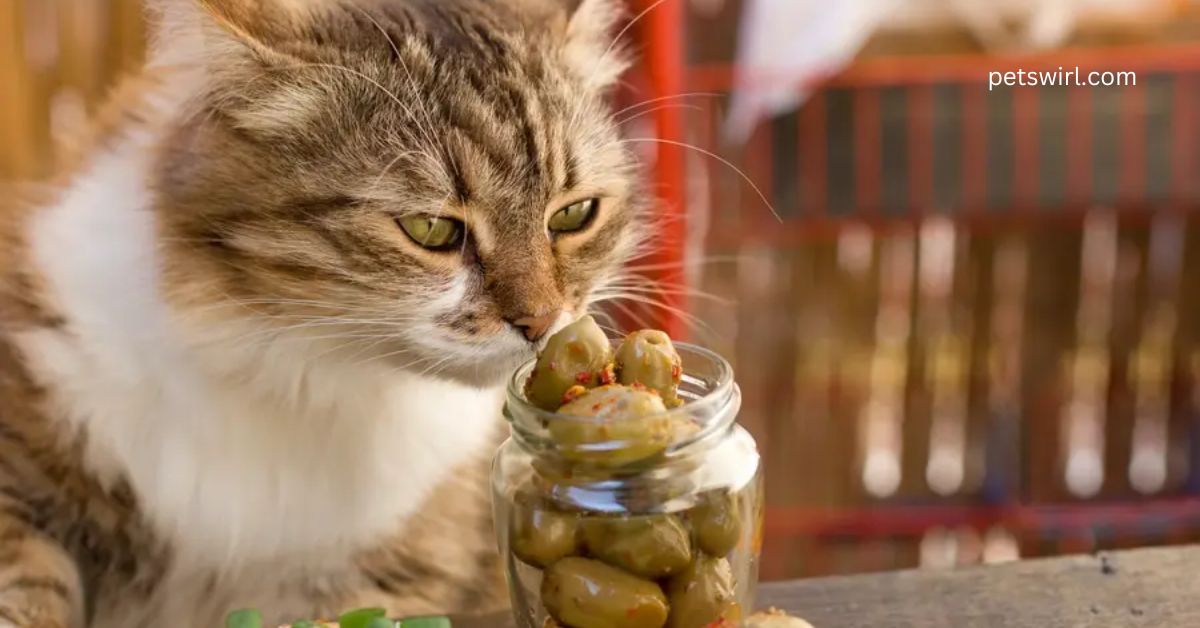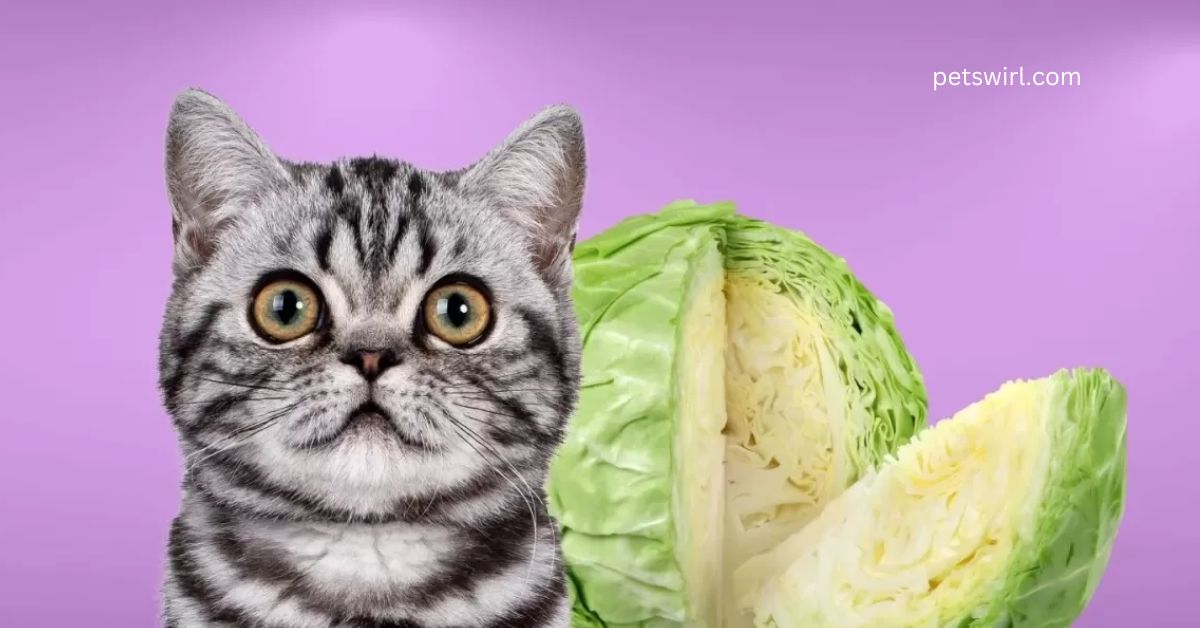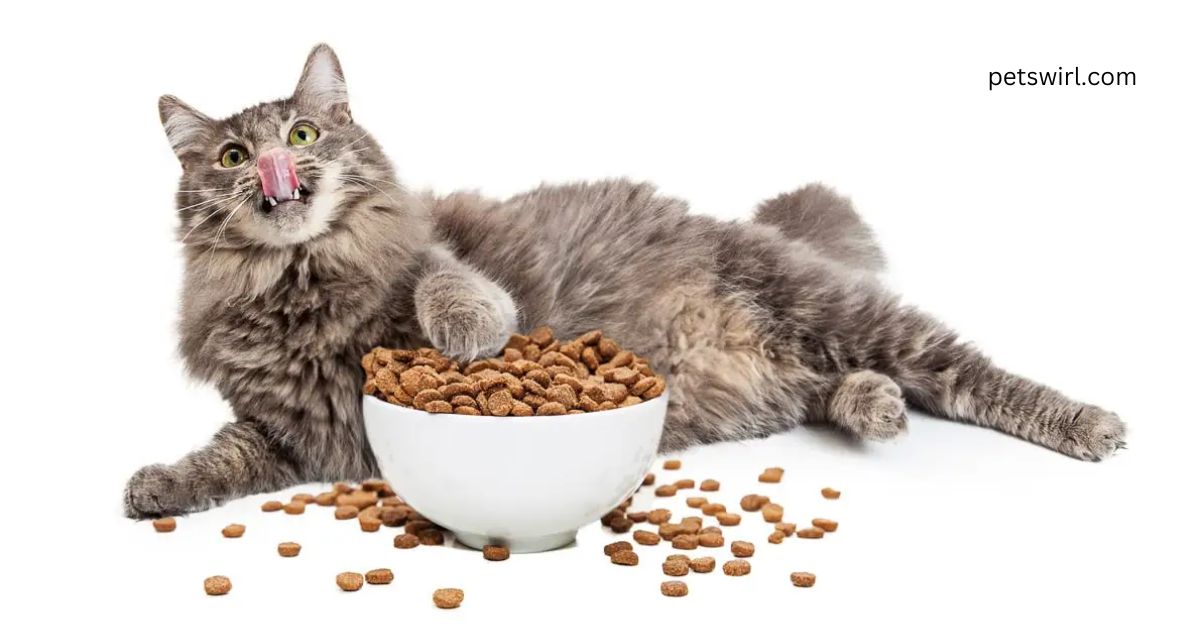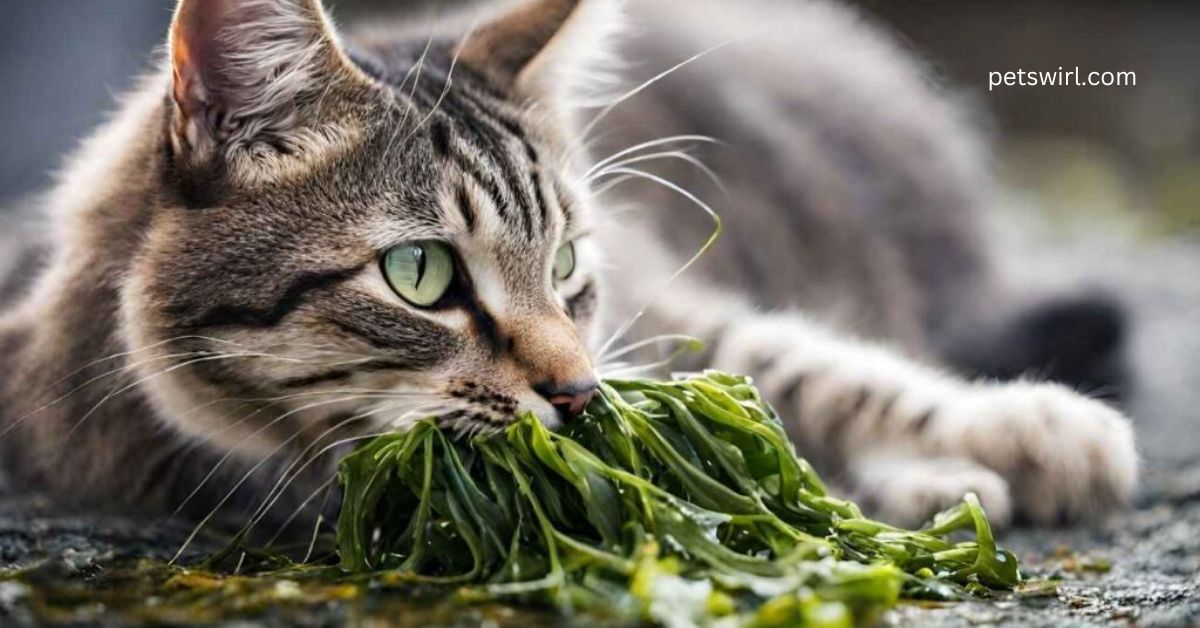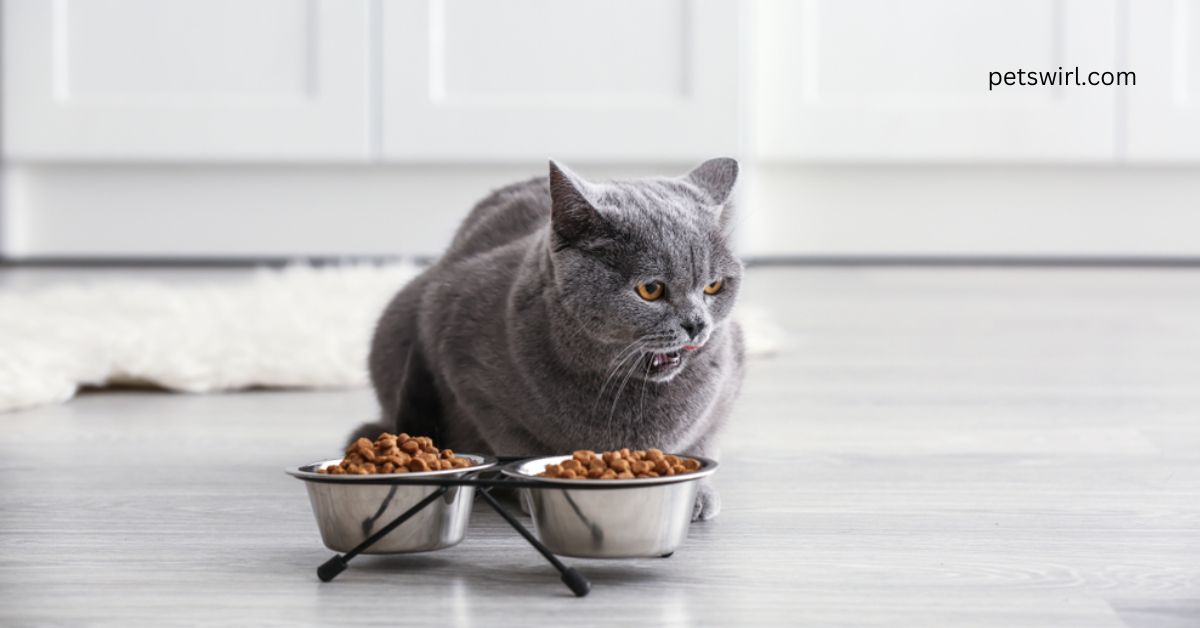Cats are naturally curious creatures, often drawn to new scents and flavors they encounter. Many cat owners have observed their feline friends’ peculiar reactions to green olives. But the question arises, can cats eat green olives safely, and what effects might these olives have on their health? Let’s dive into whether or not green olives are safe for cats, the potential health effects, and why some cats seem so captivated by them.
Are Green Olives Safe for Cats?
Can Cats Eat Green Olives?, green olives aren’t toxic to cats, so they won’t cause poisoning or immediate harm. However, this doesn’t mean they’re an ideal addition to a cat’s diet. The primary concern with feeding green olives to cats is their high sodium content, which can be harmful in large quantities. Cats don’t need sodium the way humans do, and too much can lead to dehydration or, over time, even damage to their kidneys.
Furthermore, some green olives come in brine, which significantly increases the salt content. Consuming brined olives can increase the risks associated with high sodium intake. So, are green olives safe for cats? The answer is that, while a single olive may not cause harm, it’s best to avoid feeding them regularly.
Health Effects of Green Olives on Cats
Can Cats Eat Green Olives?, green olives contain certain compounds that can affect cats in different ways. For instance, green olives have natural compounds called isoprenoids, which are chemically similar to certain cat pheromones. This may explain why some cats are unusually excited or attracted to the smell of green olives—they may be responding to these isoprenoid compounds similarly to how they react to catnip.
However, the health effects of green olives on cats vary based on individual sensitivities. Some cats may experience mild stomach upset or diarrhea if they eat an olive, while others show no ill effects.
Pros of Cats Eating Green Olives:
- Short bursts of mental stimulation and excitement from the scent.
- Low risk of toxicity from one or two bites.
Cons of Cats Eating Green Olives:
- High sodium content is potentially harmful in large amounts.
- Possible digestive upset, including vomiting or diarrhea.

Nutritional Impact of Olives on Cats
Can Cats Eat Green Olives?, while olives contain some nutrients—such as vitamin E, healthy fats, and antioxidants—the nutritional impact of olives on cats is minimal and doesn’t contribute meaningfully to a cat’s overall diet. Cats are obligate carnivores, meaning they derive almost all of their nutritional needs from animal-based proteins and fats. Plant-based foods, such as green olives, aren’t necessary for their health and may even cause digestive discomfort.
Can Cats Eat Green Olives?, the nutrients in green olives, like healthy fats and fiber, are beneficial to humans but offer little to no benefit for cats. In fact, giving cats human foods, even if nutrient-rich for us, can disrupt their finely tuned dietary needs.
Why Do Cats Like Green Olives?
The strong aroma of green olives can have an almost intoxicating effect on some cats. This response is linked to the similarity between the compounds in olives and the pheromones that cats respond to. Just as catnip produces a sense of euphoria or relaxation, some cats are attracted to olives for similar reasons. Not all cats have this reaction, but for those that do, the scent can be irresistible.
Green Olives vs. Black Olives for Cats
Can Cats Eat Green Olives?, many people wonder if there’s a difference between green olives and black olives for cats. Both types are safe in very small quantities, but there are slight differences in their composition. Green olives are usually higher in sodium, as they’re often brined or pickled. Black olives, in contrast, are usually riper and may have a milder flavor and slightly lower sodium levels.
In general, black olives are a slightly better option for curious cats due to the lower sodium content, but it’s still best to offer olives in moderation, if at all.
The Risks of Olive Toxicity in Cats
Can Cats Eat Green Olives?, although green olives are not toxic in small amounts, olive toxicity in cats can occur if they eat a large quantity. This is largely due to the high sodium and potential seasoning. Cats have a much lower tolerance for sodium than humans, and excessive salt intake can lead to a variety of health problems, such as:
- Dehydration: Excessive salt can cause dehydration, which can be dangerous for cats, especially those prone to urinary or kidney issues.
- Kidney Strain: Long-term consumption of high-sodium foods can put a strain on a cat’s kidneys.
- Hypertension: Salt can contribute to high blood pressure, which is especially concerning in older cats.
For these reasons, it’s crucial to avoid making olives a regular part of a cat’s diet.
Also read: Can Cats Eat Pistachios
Symptoms of Olive Consumption in Cats
Can Cats Eat Green Olives?, if your cat has eaten an olive, you may notice a few potential symptoms. For most cats, eating one or two olives will not cause severe issues, but here are some common symptoms of olive consumption in cats:
- Excitement or hyperactivity: Can Cats Eat Green Olives?, some cats may show an increased level of energy or playfulness.
- Gastrointestinal upset: Vomiting or diarrhea can occur, especially if the olive was brined or seasoned.
- Excessive thirst: Due to the sodium, cats may drink more water after consuming olives.
Can Cats Eat Green Olives?, if your cat has any unusual symptoms after eating an olive, or if they consumed a large amount, it’s best to consult a veterinarian to ensure there are no complications.

Safe Alternatives to Green Olives for Cats
If your cat loves the smell and taste of green olives, there are safer ways to satisfy their curiosity. Safe alternatives to green olives for cats include:
- Catnip: Offers a similar euphoric effect without any risk of digestive upset.
- Cat grass: A safe and nutritious option for cats that provides fiber.
- Olive Wood Toys: Some pet stores offer toys made from olive wood, which may appeal to cats that love the olive scent.
These alternatives give cats a way to enjoy an olive-like experience without any of the risks associated with eating real olives.
Do Cats Like Green Olives?
Can Cats Eat Green Olives?, while not every cat will react to olives, many do find the scent and taste appealing. This attraction may be due to a specific compound in olives that mimics feline pheromones. In this sense, olives can serve as a treat for the senses, but not for the stomach. Cats that enjoy the smell may be content just sniffing an olive or playing with it rather than eating it.
Pros and Cons of Green Olives for Cats
To summarize, let’s weigh the pros and cons of green olives for cats:
Pros:
- Some cats find olives mentally stimulating.
- Non-toxic in small amounts.
- Can be used to pique a cat’s curiosity and provide brief entertainment.
Cons:
- High sodium content poses health risks if given regularly.
- Risk of digestive upset, including vomiting and diarrhea.
- Adds no nutritional value to a cat’s diet.
Is It Harmful to Feed Cats Green Olives Regularly?
Can Cats Eat Green Olives?, ultimately, is it harmful to feed cats green olives regularly? Yes, while the occasional olive isn’t likely to cause harm, regular feeding is discouraged due to the high sodium content and the lack of nutritional benefits. Over time, even small amounts of sodium can strain a cat’s kidneys, and it’s best to reserve olives as a very rare treat, if at all.
Cats’ Reaction to Eating Green Olives
If your cat eats a green olive, you may notice some amusing reactions. Some cats may roll around in excitement or become more playful. This behavior is similar to how cats respond to catnip, as the compounds in olives can mimic certain feline pheromones. However, remember that this excitement doesn’t mean olives are a healthy choice for cats; it’s merely a reaction to the scent.
Final Thoughts: Can Cats Eat Green Olives?
Can cats eat green olives? Yes, but it’s not recommended as a regular part of their diet. The occasional olive likely won’t harm your cat, but it’s best to keep these foods as rare treats. With the risks of high sodium, potential digestive issues, and the lack of nutritional benefits, green olives are best enjoyed by humans, not cats.
Can Cats Eat Green Olives?, instead of offering green olives, consider safe, cat-friendly alternatives like catnip or cat grass. These options will give your feline friend a similar thrill without any potential health risks. Always keep your cat’s health in mind when sharing any food, and consult your veterinarian if you’re ever in doubt about what’s safe for them to eat.
Also read: Can Cats Eat Seaweed

